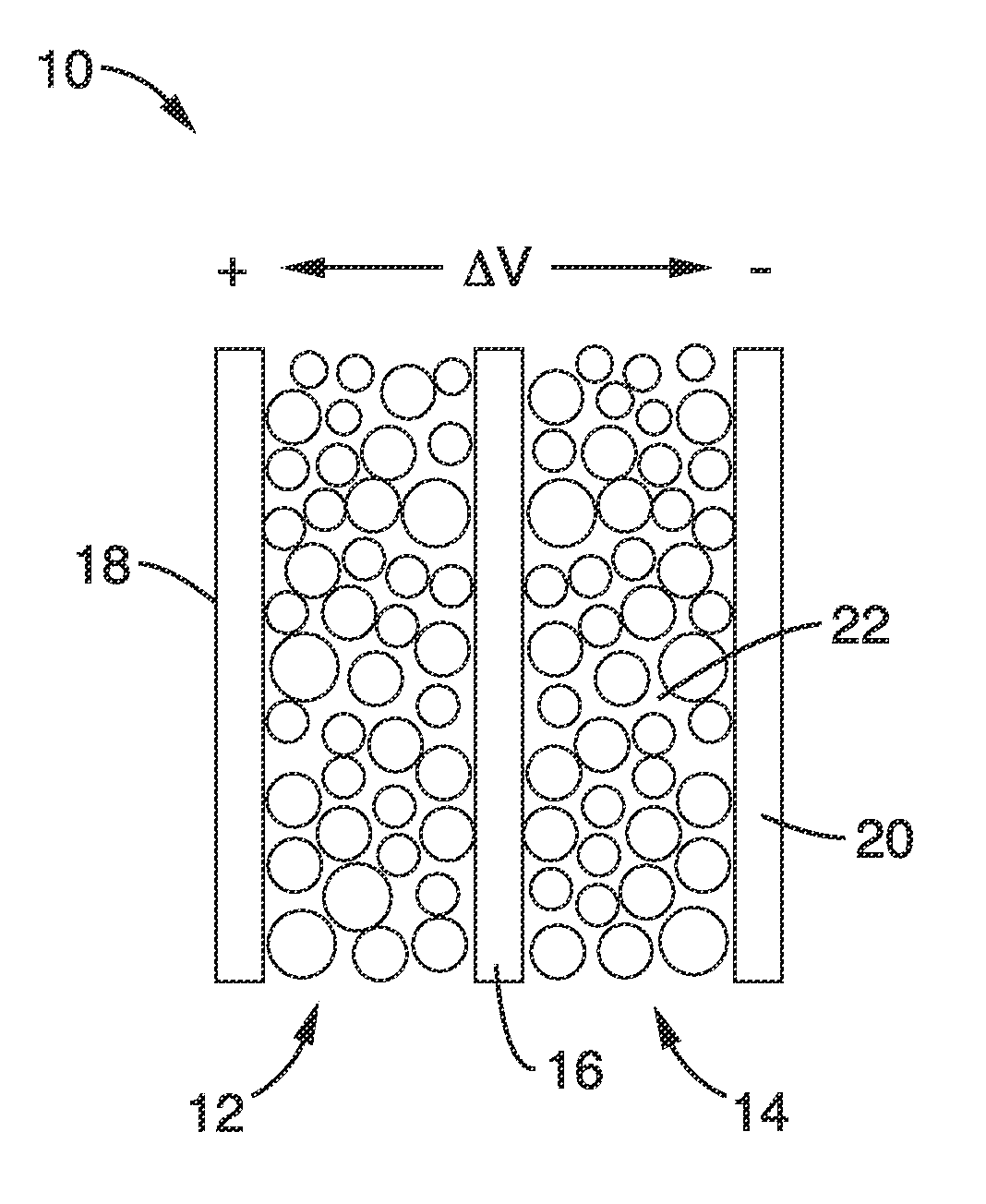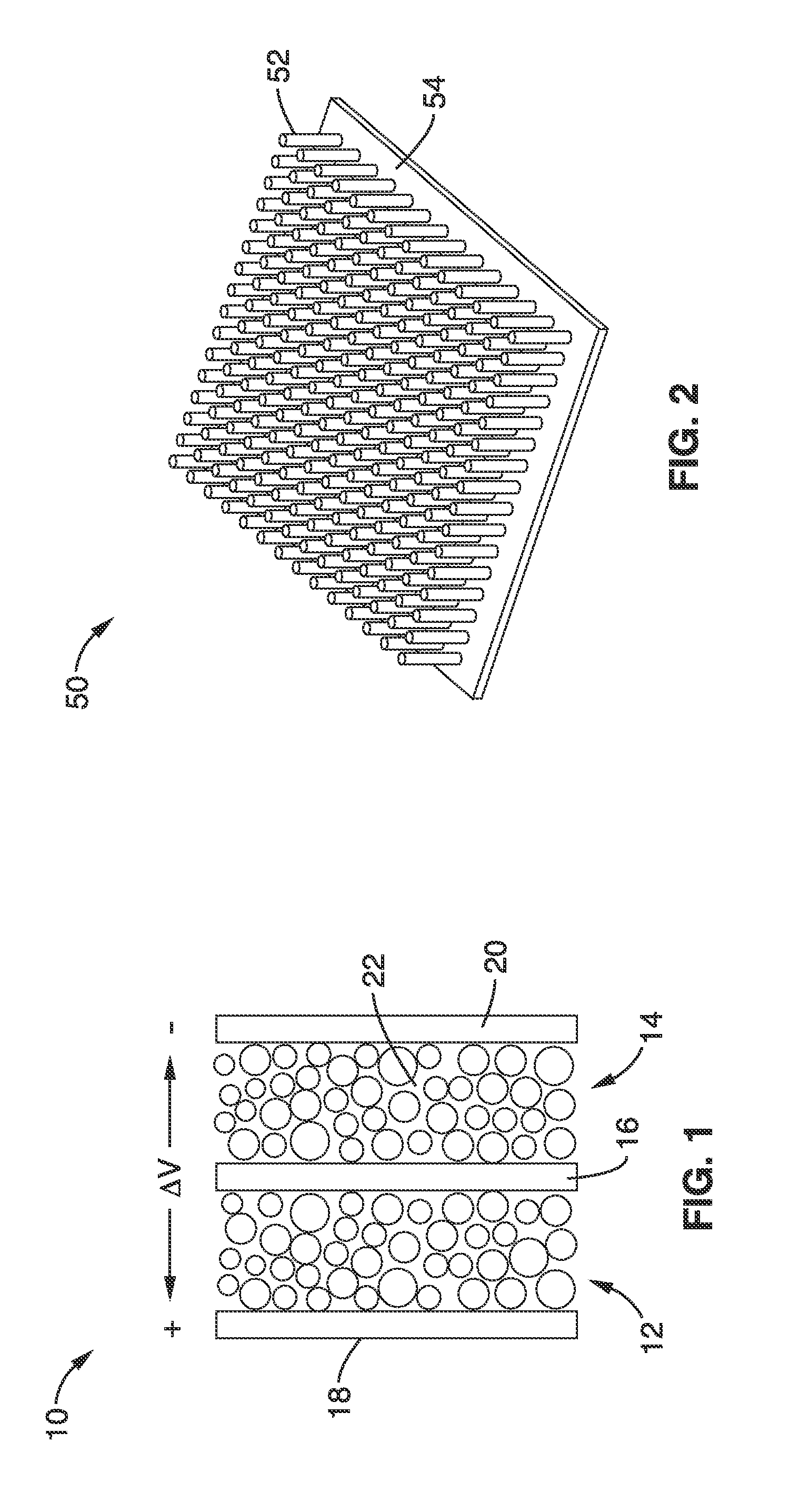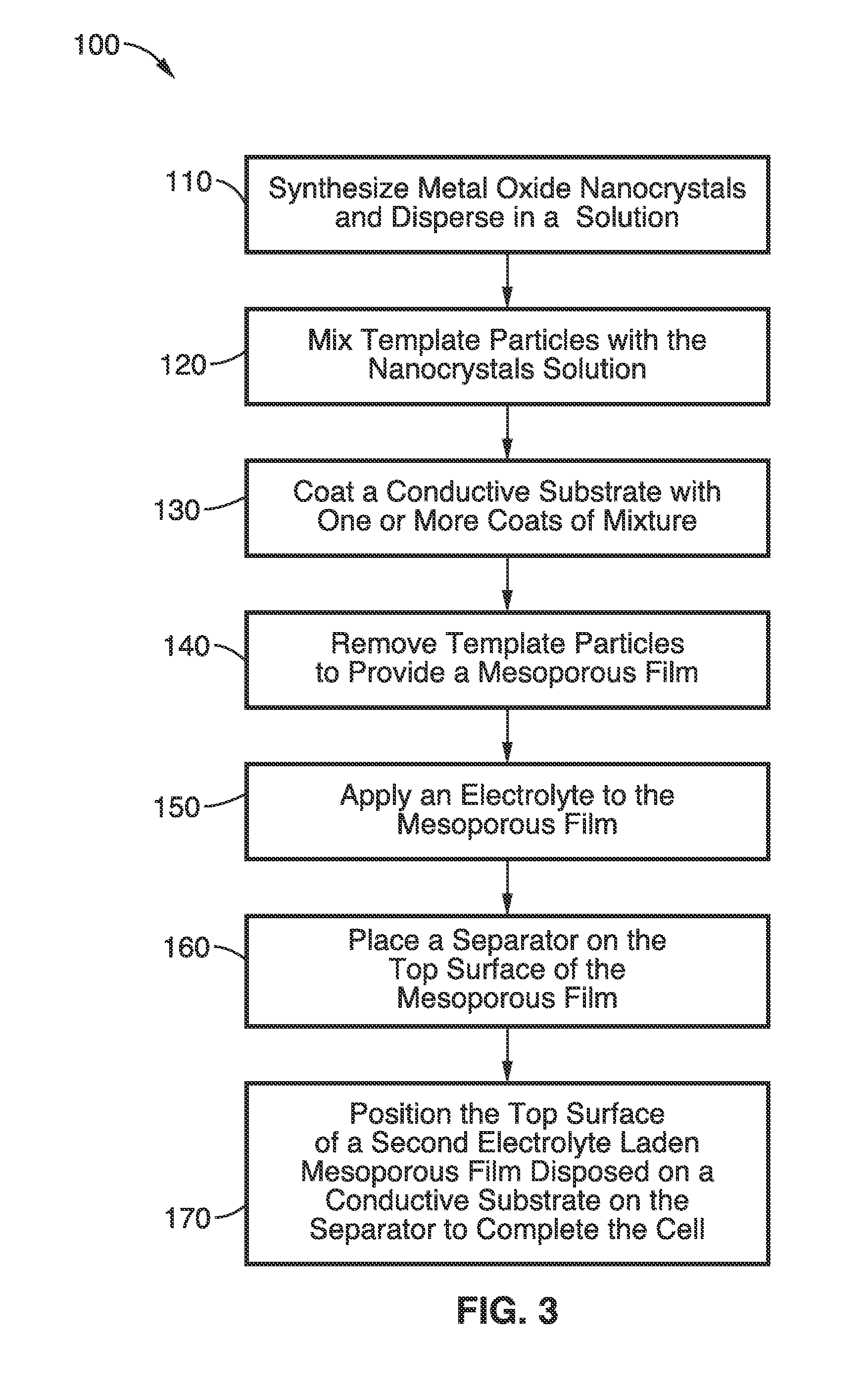Mesoporous nanocrystalline film architecture for capacitive storage devices
a capacitive storage device and membrane technology, applied in the field of charge storage devices, can solve the problems of high power density but low energy density, more widespread use of electrochemical supercapacitors, and low energy density, and achieve the effect of sacrificing the high rate charging/discharging properties of capacitors and not compromising energy density
- Summary
- Abstract
- Description
- Claims
- Application Information
AI Technical Summary
Benefits of technology
Problems solved by technology
Method used
Image
Examples
example 1
[0069]In order to demonstrate the functionality of the polymer templated sol-gel and templated nanocrystal thin films, titanium oxide thin films were synthesized and characterized. Anatase TiO2 nanocrystals were produced using a facile, surfactant-free synthesis in benzyl alcohol. In this example, 0.5 ml of TiCl4 was slowly added to 2 ml of EtOH and then combined with 10 ml of anhydrous benzyl alcohol in a water-free container. The container was loosely sealed and the solution was heated at 80° C. for 9 hours. Then, 1 ml of the resulting suspension was precipitated in 12 ml of diethyl ether and centrifuged at 5000 rpm to isolate the nanoparticles from solvent and unreacted precursor. Finally, the resulting white powder was dispersed in 3 ml of EtOH and sonicated for 2 hours, yielding a transparent sol.
[0070]According to wide-angle X-ray diffraction (WAXD), the synthesized nanoparticles were crystalline with an average grain size of 4-5 nm. Both, position and relative intensity of WA...
example 2
[0085]To further demonstrate the viability of nanocrystal thin film pseudocapacitors, cubic mesoporous molybdenum oxide (MoO3) thin films with iso-oriented nanocrystalline grains were produced and characterized. These films were produced using a poly(ethylene-co-butylene)-b-poly(ethylene oxide) block copolymer (also referred to as KLE), which has been shown to strongly facilitate the conversion of the initially amorphous framework into a highly crystalline material. It was shown that the anisotropic distribution of atoms in the unit cell of molybdite (α-MoO) allows the production of films with crystallographically oriented nanocrystals in the pore walls.
[0086]Orthorhombic α-MoO3 is an electroactive 2-dimensional layered material which can accommodate up to 1.5 Li+ / Mo. It is made of alternately stacked layers held together by weak van der Waals forces along [010]. The pseudocapacitive characteristics of ordered mesoporous α-MoO3 films were observed and shown to exhibit a superior cha...
example 3
[0099]The synthesis and characterization of highly ordered mesoporous CeO2 films with crystalline walls and periodic nanoscale porosity was conducted to demonstrate the electrochemical properties as well as the mechanical properties of these films to illustrate how pore flexing can be used to facilitate intercalation of lithium ions.
[0100]Unlike many traditional battery materials, however, CeO2 does not have a layered or tunnel structure. As a result, electrochemical redox reaction rates in the bulk material are quite slow, which limits its usefulness for electrochemical charge storage devices. While ceria is a redox-active material, bulk CeO2 is not a useful material for charge storage because it displays low capacity and slow kinetics. In mesoporous form, however, both insertion capacity and pseudocapacitance increased significantly. Accordingly, nanoscale porosity was used to convert a nonactive metal oxide into an active one.
[0101]Mesoporous film samples were prepared by dip-coa...
PUM
 Login to View More
Login to View More Abstract
Description
Claims
Application Information
 Login to View More
Login to View More - R&D
- Intellectual Property
- Life Sciences
- Materials
- Tech Scout
- Unparalleled Data Quality
- Higher Quality Content
- 60% Fewer Hallucinations
Browse by: Latest US Patents, China's latest patents, Technical Efficacy Thesaurus, Application Domain, Technology Topic, Popular Technical Reports.
© 2025 PatSnap. All rights reserved.Legal|Privacy policy|Modern Slavery Act Transparency Statement|Sitemap|About US| Contact US: help@patsnap.com



